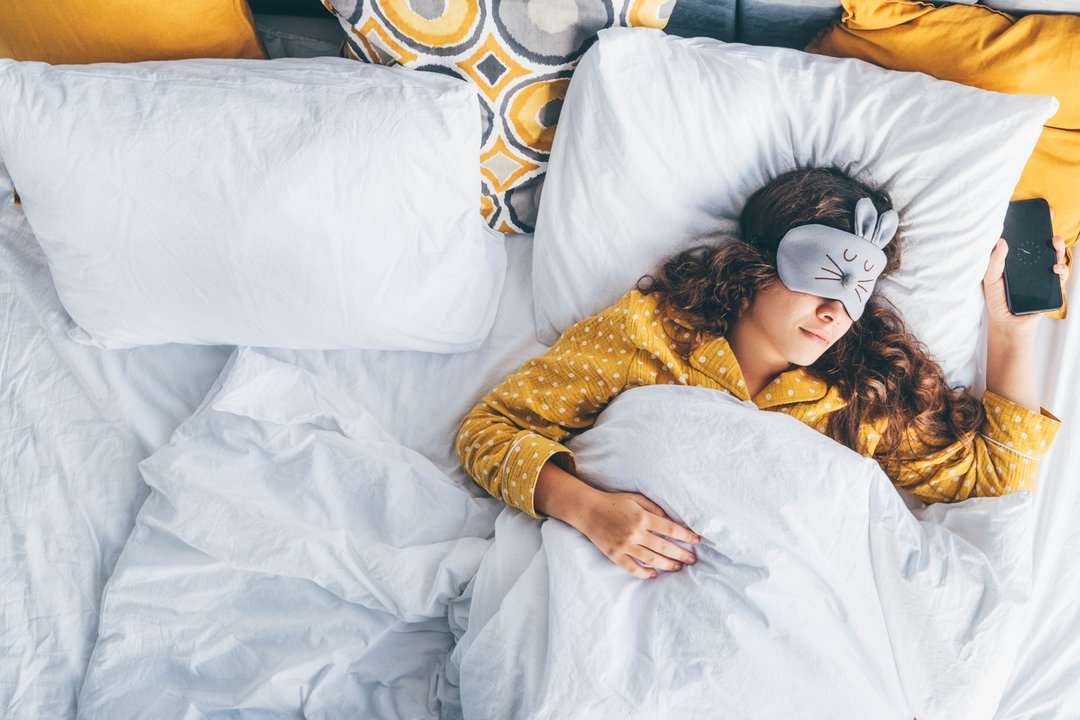By Dani Blum
Oct. 30, 2023
Just how bad is it, really, to smash the snooze button when your alarm blares? What about doing it a second time, or a third?
New research out of Sweden suggests that it may not be as detrimental to your sleep as it seems, though some sleep experts still advise against it.

Getty Images
Across two studies, researchers set out to examine the effects of snoozing, or using intermittent alarms, to postpone finally dragging yourself out of bed. They started by surveying over 1,700 people about their sleep habits and found that nearly 70 percent of them routinely hit the snooze button. The subjects mostly did so because they felt too tired to wake up, though 17 percent said they snoozed because “it feels good.”
The researchers then had 31 habitual snoozers spend several nights in a sleep lab. On one morning, they were allowed to hit the snooze button every 10 minutes or so, for up to 30 extra minutes of rest. But on another morning, they had to get up right after their alarms went off.
Immediately after the participants woke up, the researchers flipped on the lights and presented them with math problems and other cognitive tests — a challenge even more grating than a shrieking alarm, and one the participants had to complete before having a cup of coffee.
Overall, participants performed slightly better on some of the cognition tests when they were allowed to snooze for 30 minutes, and their sleep quality wasn’t significantly worse because of the morning snoozing, said Tina Sundelin, a researcher at Stockholm University and the lead author of the studies.
If you tend to be very tired in the morning, “half-sleeping, or sleeping rather than being awake and not functioning, might actually be helpful to your final wake-up,” she said.
The sleep lab portion of the study included only a small number of people, and the average age of the participants was around 27. Both of those factors make it difficult to draw widespread conclusions about the effects of snoozing on sleep. The researchers also excluded people with insomnia symptoms and people who said they had trouble sleeping in places other than their own beds.
Broadly speaking, experts said there was not strong evidence to definitively prove whether it’s a bad idea to hit the snooze button because there is so little research on the subject. A 2022 study of 450 people in the United States found that those who snoozed didn’t get less sleep overall. But another study of around 300 university students in Japan found that those who hit the snooze button had more prolonged sleep inertia — which can include the groggy, confused, irritable, “almost a little bit drunken” feeling you have when you first wake up, said Dr. Phyllis Zee, a sleep medicine specialist at Northwestern Medicine. Sleep inertia also slows down your thinking, reduces your reaction time and worsens your short-term memory.
Snoozing may make waking up less unpleasant, said Dr. John Saito, a spokesman for the American Academy of Sleep Medicine. Drifting back to bed after an alarm goes off sends you into a lighter stage of sleep, he said, which is a less “brutal” way to wake up than from a deeper sleep.
The urge to hit your snooze button could point to larger issues, said Dr. Rachel Salas, assistant medical director of Johns Hopkins Center for Sleep and Wellness. Many snoozers she sees are sleep-deprived. Often, they’re not going to bed and waking up at consistent times; in some cases, people who rely on the snooze button have undiagnosed sleep disorders, like narcolepsy and sleep apnea.
Rather than setting and snoozing multiple alarms, a better way to haul yourself out of bed may be to put your phone or alarm across the room, said Dr. Indira Gurubhagavatula, a sleep specialist at Penn Medicine. Doing so can break the habit of relying on the snooze button and make it harder to slip back into sleep. Getting sunlight in the morning can also help.
If you’re able to repeatedly hit your snooze button in the first place, that means you have the luxury of time, Dr. Gurubhagavatula said; you don’t actually have to wake up for your first alarm. So you might as well just set your alarm for as late as you can, she said, and not lose the precious minutes of rest between interruptions.
Still, she acknowledged, that may not dissuade the lifelong snoozers.
“There’s science, and then there’s habit,” she said.
c.2025 The New York Times Company


